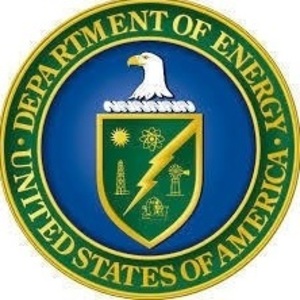Pilot-scale project to produce fuels from wastewater sludge

January 10, 2017
BY The Water Environment & Reuse Foundation
A consortium led by the Water Environment & Reuse Foundation has been selected by the U.S. DOE for award negotiations to begin Phase 1 design and planning for a pilot plant to produce clean hydrocarbon fuels at a municipal wastewater treatment facility. The project will use breakthrough technology to produce fuels such as gasoline, jet fuel, diesel and renewable natural gas from wastewater solids.
The Central Contra Costa Sanitary District, near Oakland, California, will host the pilot system. The consortium includes WE&RF representing many of the 16,000 wastewater systems in the U.S., Genifuel Corp. with technology from DOE’s Pacific Northwest National Laboratory, Merrick & Co., Southern California Gas Co., Tesoro Corp., Metro Vancouver, MicroBio Engineering, Brown and Caldwell, and over a dozen utility partners.
The technology, called hydrothermal processing, converts waste solids from a wastewater treatment plant into biocrude oil and methane gas in less than one hour. The biocrude oil replaces fossil oil, providing green fuels with nearly zero net new carbon emissions. The methane gas can be used in the same ways as fossil natural gas. Biocrude oil produced in the system will be refined in an existing refinery, while the methane gas will be sold for transport in the gas pipeline system. If fully implemented in wastewater treatment operations across the U.S., the technology will produce more than 2 billion gallons of gasoline equivalent per year. The system also produces fertilizer byproducts.
Advertisement
The selection was made by the Bioenergy Technologies Office, part of the Office of Energy Efficiency and Renewable Energy at DOE. “We are very proud that our consortium was selected for award negotiation” stated Melissa Meeker, CEO of WE&RF. The partners have demonstrated that they can convert wastewater solids into renewable hydrocarbon fuels using existing infrastructure, while replacing fossil fuels and reducing greenhouse gas emissions. A successful demonstration via the pilot plant in this project could transform wastewater treatment while contributing a substantial amount of clean biofuel.
Additional information on this project and the related research that supports it can be found at www.werf.org.
Advertisement
Related Stories
U.S. fuel ethanol capacity fell slightly in April, while biodiesel and renewable diesel capacity held steady, according to data released by the U.S. EIA on June 30. Feedstock consumption was down when compared to the previous month.
The U.S. EPA on July 8 hosted virtual public hearing to gather input on the agency’s recently released proposed rule to set 2026 and 2027 RFS RVOs. Members of the biofuel industry were among those to offer testimony during the event.
The USDA’s Risk Management Agency is implementing multiple changes to the Camelina pilot insurance program for the 2026 and succeeding crop years. The changes will expand coverage options and provide greater flexibility for producers.
The USDA’s National Agricultural Statistics Service on June 30 released its annual Acreage report, estimating that 83.4 million acres of soybeans have been planted in the U.S. this year, down 4% when compared to 2024.
SAF Magazine and the Commercial Aviation Alternative Fuels Initiative announced the preliminary agenda for the North American SAF Conference and Expo, being held Sept. 22-24 at the Minneapolis Convention Center in Minneapolis, Minnesota.
Upcoming Events










